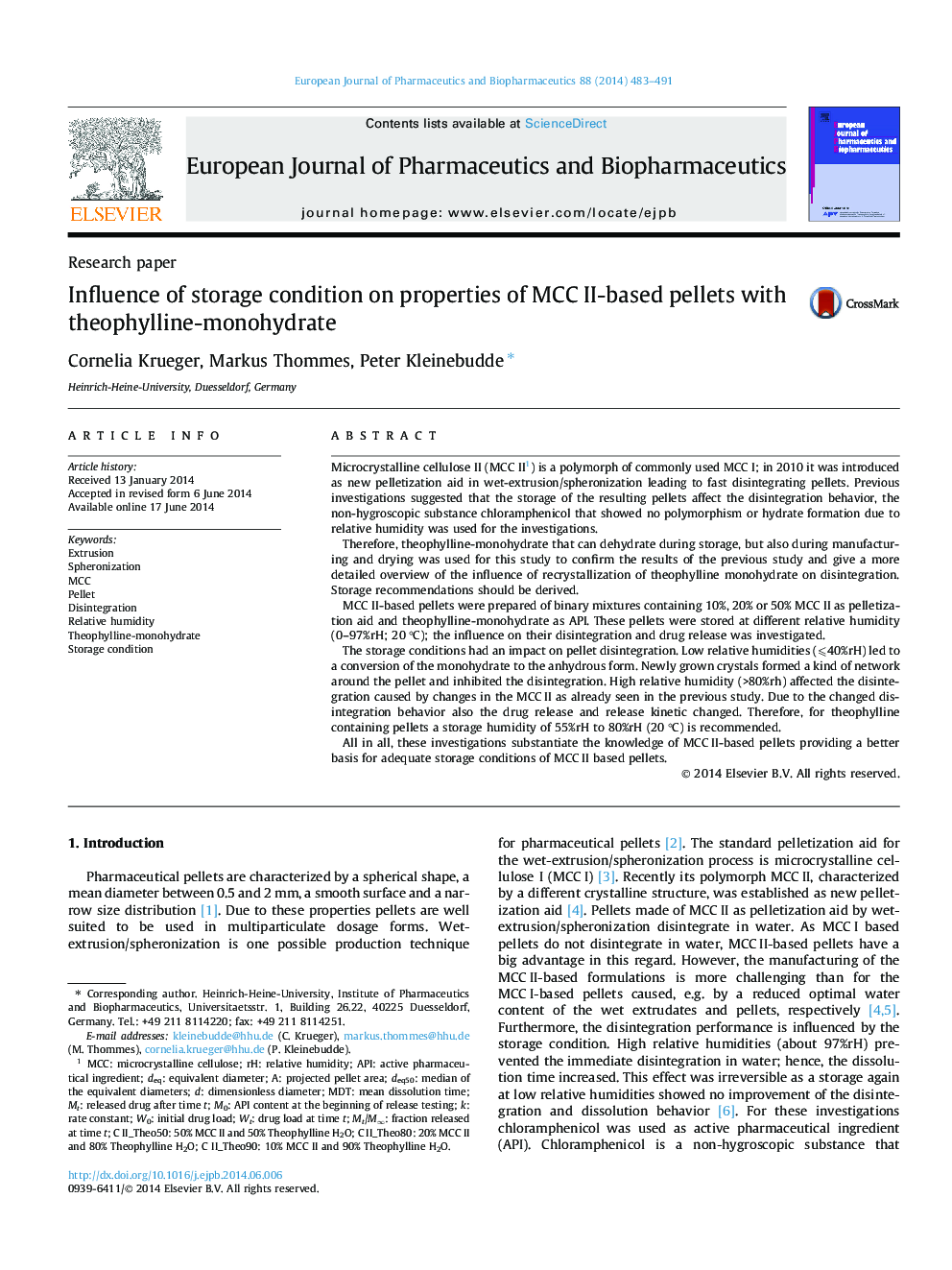| Article ID | Journal | Published Year | Pages | File Type |
|---|---|---|---|---|
| 2083830 | European Journal of Pharmaceutics and Biopharmaceutics | 2014 | 9 Pages |
•The humidity during storage affects the disintegration of theophylline pellets.•High relative humidity causes changes in MCC II.•At low relative humidity theophylline monohydrate converts to its anhydrate.•The slower disintegration affects the release rate and release kinetic.
Microcrystalline cellulose II (MCC II1) is a polymorph of commonly used MCC I; in 2010 it was introduced as new pelletization aid in wet-extrusion/spheronization leading to fast disintegrating pellets. Previous investigations suggested that the storage of the resulting pellets affect the disintegration behavior, the non-hygroscopic substance chloramphenicol that showed no polymorphism or hydrate formation due to relative humidity was used for the investigations.Therefore, theophylline-monohydrate that can dehydrate during storage, but also during manufacturing and drying was used for this study to confirm the results of the previous study and give a more detailed overview of the influence of recrystallization of theophylline monohydrate on disintegration. Storage recommendations should be derived.MCC II-based pellets were prepared of binary mixtures containing 10%, 20% or 50% MCC II as pelletization aid and theophylline-monohydrate as API. These pellets were stored at different relative humidity (0–97%rH; 20 °C); the influence on their disintegration and drug release was investigated.The storage conditions had an impact on pellet disintegration. Low relative humidities (⩽40%rH) led to a conversion of the monohydrate to the anhydrous form. Newly grown crystals formed a kind of network around the pellet and inhibited the disintegration. High relative humidity (>80%rh) affected the disintegration caused by changes in the MCC II as already seen in the previous study. Due to the changed disintegration behavior also the drug release and release kinetic changed. Therefore, for theophylline containing pellets a storage humidity of 55%rH to 80%rH (20 °C) is recommended.All in all, these investigations substantiate the knowledge of MCC II-based pellets providing a better basis for adequate storage conditions of MCC II based pellets.
Graphical abstractFigure optionsDownload full-size imageDownload high-quality image (132 K)Download as PowerPoint slide
